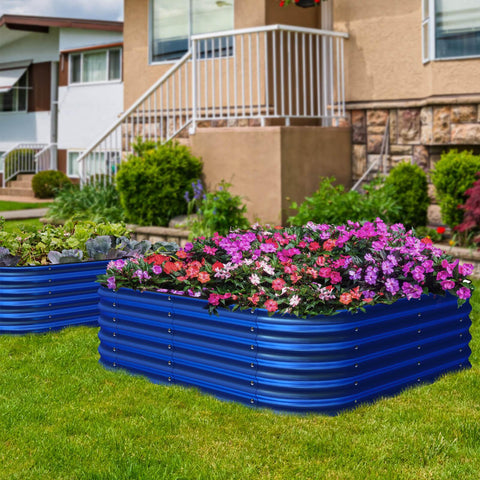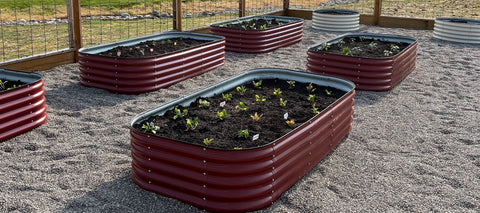Water Wisdom: Ending the Frequent Irrigation of Raised Garden Beds
Water is a precious resource, and in an era of increasing environmental awareness, it's essential that we become more water-wise in our gardening practices. One significant area where we can make a difference is by reevaluating how we irrigate our raised garden beds. In this blog, we'll explore the importance of water conservation and offer practical tips to reduce the need for frequent irrigation in your raised garden beds.
The Water Challenge in Gardening
Gardening, while rewarding, can be surprisingly water-intensive. This is especially true when it comes to raised garden beds, which can dry out more quickly than traditional in-ground gardens due to increased exposure to air and sun. Frequent irrigation not only strains water resources but can also lead to overwatering, leaching of nutrients, and soil erosion. So, what can you do to become water-wise and put an end to the constant need for irrigation in your raised beds?
- Choose the Right Soil
- The foundation of water-wise gardening begins with the soil. Invest in high-quality soil that retains moisture effectively. Consider adding organic matter such as compost and mulch to improve water retention. Well-amended soil can significantly reduce the frequency of watering.
- Mulch, Mulch, Mulch
- Mulching is a water-saving superhero. Apply a thick layer of mulch around your plants to reduce evaporation, regulate soil temperature, and suppress weeds that compete for moisture. Organic mulch like straw, wood chips, or compost not only conserves water but also enriches your soil over time.
- Select Drought-Tolerant Plants
- Choose plants that are well-suited to your local climate and are naturally adapted to dry conditions. Native plants and drought-tolerant varieties often require less water and can thrive with minimal irrigation.

- Water Deeply, Not Frequently
- When you do water, ensure it's a deep soak rather than a shallow spray. Deep watering encourages plant roots to grow deeper into the soil, where they can access moisture more effectively. Aim to water in the morning or late afternoon to reduce evaporation.
- Implement Efficient Irrigation Methods
- Consider installing drip irrigation systems or soaker hoses in your raised beds. These systems deliver water directly to the root zone, minimizing water waste and evaporation. Use a timer to ensure you're watering at optimal times and for the right duration.
- Use Rain Barrels or Greywater
- Harvest rainwater in barrels to supplement your irrigation needs. Additionally, consider reusing greywater from your home (after appropriate treatment) to water your garden. These practices reduce your reliance on potable water sources.
- Regularly Monitor Soil Moisture
- Invest in a soil moisture meter, or simply use your finger to check the moisture level in the soil. Water only when the soil is dry, several inches below the surface. Overwatering is as detrimental as under watering.
- Practice Companion Planting
- Companion planting is a technique that involves planting certain crops together to optimize their growth. Some combinations can help retain soil moisture by providing shade or acting as natural mulch for one another.

- Apply Rainfall and Weather Data
- Be aware of local weather patterns and rainfall. Adjust your watering schedule accordingly. Avoid unnecessary irrigation if rain is forecasted, and be ready to water more during dry spells.
- Educate Yourself and Others
- Share your water-wise gardening knowledge with friends and neighbors. Together, we can raise awareness about responsible water usage and contribute to a more sustainable future.
You may significantly decrease the requirement for routine irrigation in your raised garden beds by implementing these water-wise methods. This will not only save water and lessen the effect you have on the environment, but it will also produce plants that are healthier and more resilient, making your garden more sustainable. Let's strive to use water wisely in our gardening so that we can preserve this priceless resource for future generations.
